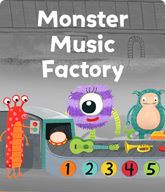The Harvard Family Research Project separated from the Harvard Graduate School of Education to become the Global Family Research Project as of January 1, 2017. It is no longer affiliated with Harvard University.

FINE Newsletter: Formula for Success: Engaging Families in Early Math Learning
Volume VIII, Issue 2, May 2016
At a recent White House symposium, policymakers, funders, researchers, and educators gathered to discuss the importance of promoting early Science, Technology, Engineering, and Math (STEM) education for our nation’s youngest learners. A number of key themes emerged from this meeting, including that children’s knowledge of math is broad and deep, that it is one of the best predictors of later school success,1 and that it develops anywhere, anytime, starting at birth. Most importantly, families are fundamental to children’s early math success.
The teaching of mathematics, however, looks different from the instruction that was offered when most adults were in school, and many parents harbor anxiety about math. For this reason, families need guidance, inspiration, and motivation to support their young children’s mathematical development effectively.
This issue of the FINE Newsletter draws out important lessons for both practitioners and families around engaging families in children’s learning of mathematics anywhere, anytime. Taken together, the articles in this edition clearly show that
- math is part of our everyday lives, and as such, is conditioned by relationships, culture, and values;
- math can be an enjoyable parent-child experience; and
- digital media can be harnessed to promote math learning—for children and parents.
We invite you to share this issue with interested friends and colleagues. We also hope you’ll send us any comments that you have!
Commentary
 |
Math Is Everywhere, When We Know What to Look For |
Voices From the Field
 |
Reading Interactive Math Storybooks |
|
Q & A with Laura Overdeck of Bedtime Math: Helping Families and Children Cuddle Up to Math |
|
 |
Expert Commentary to “Daddy Says This New Math Is Crazy”: Three Tips for Teachers Based on her work with the Nana y Yo y las Matemáticas project, Marlene Kliman writes about three strategies teachers can use to engage families in their children’s math education, especially when today’s math curriculum diverges from traditional practices. |
SNAPSHOTS
 |
Helping Teachers of Mathematics Integrate the Knowledge and Culture of Families Into Their Practice |
RESEARCH DIGEST
 |
Transmedia Activities: Engaging Families to Improve Children's Early Mathematics Achievement |
FAMILY INVOLVEMENT NEWS
 |
Family Involvement News: June 2016 |
1 Morgridge College of Education at the University of Denver (2016, April 21). Douglas Clements, Ph.D on Early Childhood Math Education at the White House [Video File]. Retrieved from https://youtu.be/WnkSl-obh3c
The FINE Newsletter shares the newest and best family engagement research and resources from Harvard Family Research Project and other field leaders. To access the archives of past issues, please visit www.hfrp.org/FINENewsletter. To subscribe to the FINE Newsletter, please visit our subscription center.

